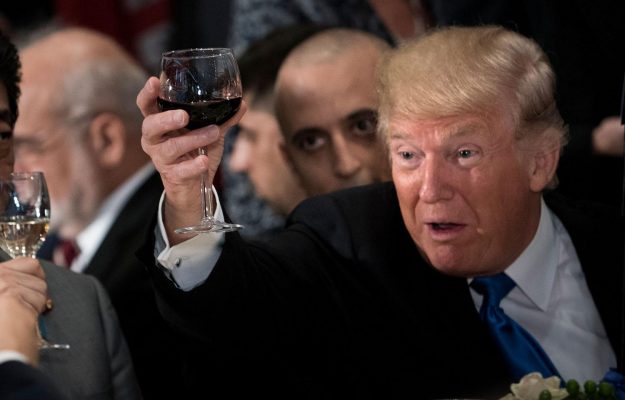Wine is the most exported beverage in the world. As matter of fact, it reached a turnover of 35.7 billion US dollars in 2019, more than whiskey (34 billion US dollars) and beer (16.5 billion US dollars). But it is also more than soft drinks (21.3 billion) and fruit juices (14.6 billion). Furthermore, it is one of the most geographically localized productions. Sixty percent of wine is produced in the European Union, and 67% of exports are from the Old World Countries, obviously including intra-continental ones. The United States, China, Argentina and Australia, countries linked by fundamental diplomatic and commercial relations, also play an important role in production and trade.
The study, “Wine: The Punching Bag in Trade Retaliation”, curated by the University of Illinois at Urbana-Champaign, Washington State University and Texas Tech University, pointed out, however, that there are enormous differences in tariffs among the Countries. Trade among the EU Countries, for instance, is not subject to any type of duty. There are destinations, instead, where duties reach up to 40% for bottled wines and 64% for bulk wine. In the traditionally Islamic countries, instead, tariffs reach such high levels as to make it almost impossible to market wine. In Egypt, for instance, duties on wine are 1.800%, while in Jordan, 654%.
As if this were not enough, and as the title of the study suggests, over the past several years wine has often paid the price of tensions and clashes between major economic powers, and therefore, ending up on the lists of products sanctioned in terms of tariffs. The rather obvious result is a decline in turnover, quantified in 340 million US dollars lost per year. This is what happened in 2020, when the United States, as part of the high-altitude clash with the European Union over aid to Airbus, raised the tariffs on wine in France, Spain and Germany to 25% / from 2.41%). Europe, on the other hand, blamed Washington for the same responsibility on Boeing, and retaliated by doing the exact same thing; that is, raising tariffs on US wine to 25% (from 3.48%).
At the end of 2020, China made an even tougher decision, which, in the midst of the political and commercial clash with Australia, raised tariffs on Australian wine that until then imported at zero duties, to 116-212%. Essentially, the effects of tariff retaliation concerned almost 2.7 billion US dollars of wine marketed in the world. A total liberalization would instead allow the wine trade to expand to 76 million US dollars.
Copyright © 2000/2026
Contatti: info@winenews.it
Seguici anche su Twitter: @WineNewsIt
Seguici anche su Facebook: @winenewsit
Questo articolo è tratto dall'archivio di WineNews - Tutti i diritti riservati - Copyright © 2000/2026







































































































































































































